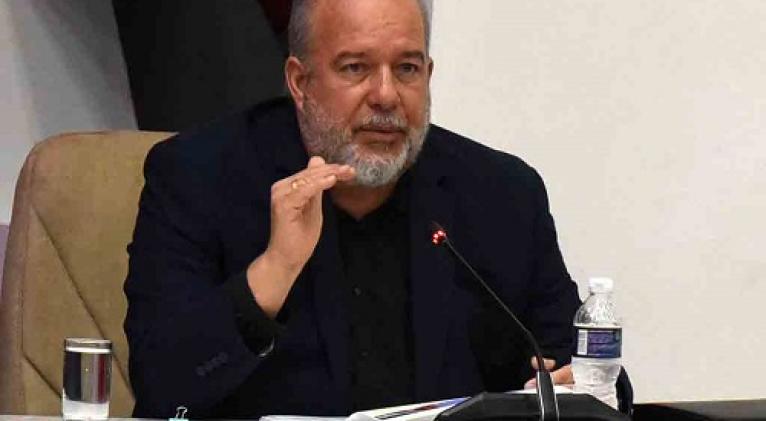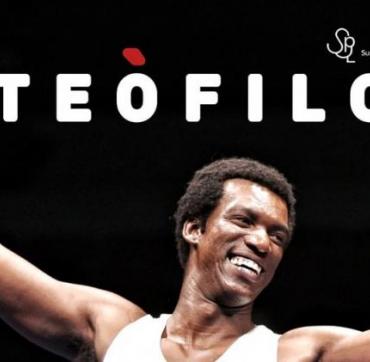Culture is a pillar of the country's resistance, Cuban PM asserts
especiales

Cuban culture in 2024, a particularly difficult year, was a fundamental pillar of the country's political resistance, for maintaining national identity and unity, said Manuel Marrero Cruz, member of the Political Bureau and Prime Minister of the Republic, during the annual working meeting of the Ministry of Culture (Mincult).
At the meeting, held in Havana in the presence of Miguel Diaz-Canel Bermudez, first secretary of the Central Committee of the Communist Party of Cuba (PCC) and president of the country, the head of government praised the role of creators in the previous period despite the socioeconomic difficulties.
We are proud of Cuban writers and artists because with their work they contributed to social cohesion, to preserve the authentic values of the nation and fostered the necessary dialogue to build a better country together, Marrero Cruz pointed out.
The Prime Minister urged the protection of artists and intellectuals and their works, to internationalize Cuban culture without making concessions to hegemonic industries and to fight the battle on all possible platforms to confront the cognitive and symbolic war.
Agustin Perez Gonzalez, director of Cultural Programs of the Mincult, explained that in 2024, despite the economic shortages and power supply problems, no cultural event was suspended on the island.
According to Perez Gonzalez, it is necessary for the current period that artistic productions transcend the stages of the capital so that audiences in the rest of the archipelago come into contact with these creations.
For his part, Alexis Triana Hernandez, president of the Cuban Institute of Cinematographic Art and Industry (Icaic by its Spanish acronym), commented on how the policy of differentiated attention to the seventh art in the Caribbean nation allowed last year to relaunch the Film Commission, the creation of high quality programs in the Animation Studios and the reactivation of the Cubanacan Film Studios.
With the independent audiovisual collectives, with which Icaic has strengthened its ties, some 217 works were shot, including 10 feature films that will soon be premiered on the big screen, he reported.
According to Triana Hernandez, the filmmakers' cameras must be in the neighborhoods to tell the stories of the people and transmit them to the new generations.
At the same meeting, Abel Prieto Jimenez, president of Casa de las Americas, insisted on creating an anti-colonial and anti-fascist front from culture.
It will be essential to have an Observatory of Cultural Policies that will allow a hegemonic counter-offensive and free the battle against the avalanche of commercial junk that arrives in different ways.
Alpidio Alonso Grau, head of Culture, pointed out during the assessment that an action plan with eight objectives and actions that will give priority attention to some areas of creation in the country is foreseen for this year.
Work will be done to promote the arts and literature from a decolonizing sense, including in the media, and will be reflected in the attention to the National Ballet of Cuba and the teaching of that manifestation, as well as in other goals, among them, the implementation of the Comprehensive Policy for the commercialization of visual arts, the minister detailed.
He emphasized the importance of protecting the country's heritage and historical memory through interactive museums and the rescue of numerous institutions that are currently deteriorated and require a large budget for their recovery.
Alonso Grau insisted on raising the quality of cultural programming in each space and, fundamentally, in the communities with the presence of professional artistic units and also amateur talent.
The annual work meeting of the Mincult was also attended by Maryde Fernandez Lopez, member of the Central Committee of the PCC and deputy head of the Ideological Department, and Ines Maria Chapman Waugh, deputy prime minister of the Republic.














Add new comment